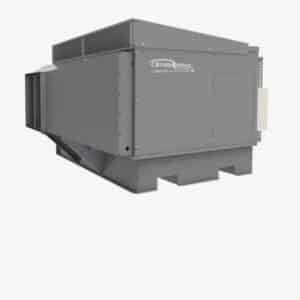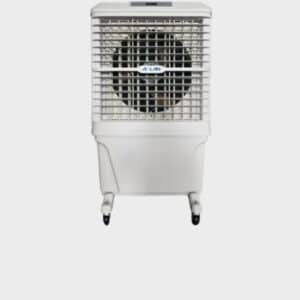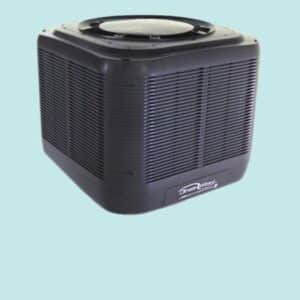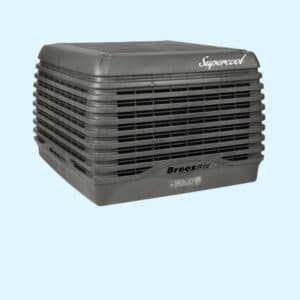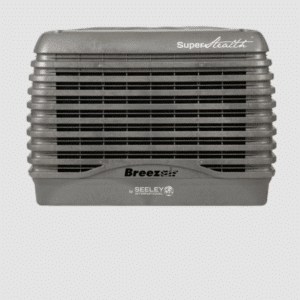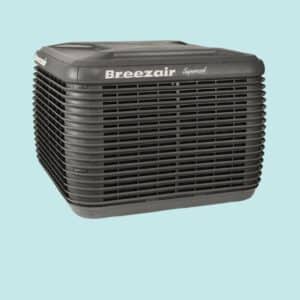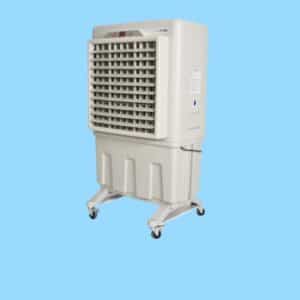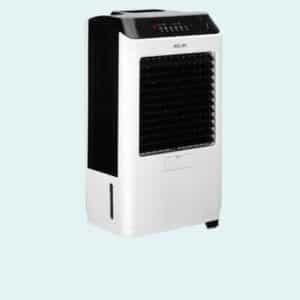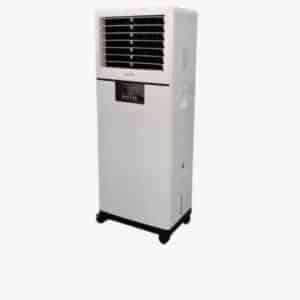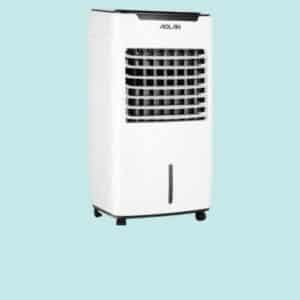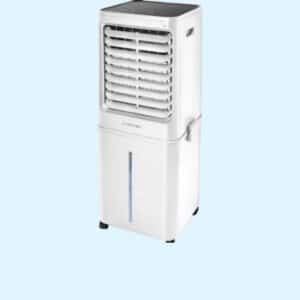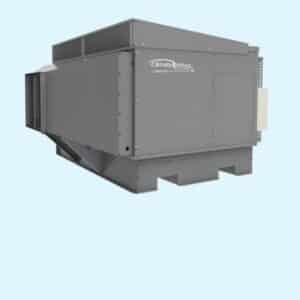In the bustling environment of a commercial kitchen, maintaining a cool and comfortable workspace is crucial not just for the well-being of the staff but also for the overall efficiency and safety of operations. Traditional air conditioning systems have been the go-to solution for many years, but evaporative air cooling presents a compelling alternative. Here’s why evaporative air cooling stands out as the best method for cooling down a commercial kitchen.
Energy Efficiency and Cost-Effectiveness
One of the primary advantages of evaporative air cooling systems is their energy efficiency. Unlike traditional air conditioners that rely on energy-intensive compressors and refrigerants, evaporative coolers use a natural process to cool the air. Water is evaporated to cool the air, which is then circulated throughout the kitchen. This process consumes significantly less electricity, leading to substantial cost savings, particularly in an environment where energy usage is already high due to cooking equipment and lighting.
Lower energy consumption not only reduces utility bills but also contributes to a smaller carbon footprint. In an era where sustainability is increasingly important, adopting greener technologies like evaporative cooling can enhance a business’s environmental credentials, appealing to eco-conscious consumers and stakeholders.
Improved Air Quality
Commercial kitchens generate a considerable amount of heat, smoke, and odors, which can create an uncomfortable and sometimes hazardous working environment. Evaporative coolers help improve air quality by providing a constant supply of fresh, filtered air. The cooling process involves drawing outside air through water-saturated pads, which naturally filter out dust and pollutants.
This continuous influx of fresh air helps to dilute and remove airborne contaminants, ensuring a healthier workspace for kitchen staff. Better air quality can lead to improved employee comfort and productivity, as well as reduced instances of heat-related illnesses and respiratory issues.
Effective Heat Management
Traditional air conditioning systems can struggle to keep up with the high temperatures in a commercial kitchen, where ovens, stoves, and other equipment generate significant heat. Evaporative coolers are particularly effective in such environments because they work best in conditions where the air is hot and dry, which is typical in a busy kitchen.
These systems provide consistent cooling by replacing hot, stale air with cooler air, maintaining a more stable and comfortable temperature. This effective heat management is crucial in preventing equipment from overheating and ensuring that food storage and preparation areas remain within safe temperature ranges.
Cost-Effective Installation and Maintenance
Installing an evaporative cooling system is generally less expensive and less invasive than setting up a traditional HVAC system. Evaporative coolers require less complex ductwork and fewer mechanical components, which translates to lower installation costs and quicker setup times.
Maintenance is also more straightforward and less costly. The primary maintenance tasks involve cleaning the cooling pads, checking the water pump, and ensuring proper airflow. These tasks can often be performed without specialised training, reducing the need for expensive service calls and minimising downtime.
Humidity Control
While it’s true that evaporative coolers add moisture to the air, this can actually be beneficial in dry climates where commercial kitchens often suffer from low humidity levels. Properly managed humidity can prevent ingredients from drying out, maintain the integrity of certain foods, and even help preserve wooden utensils and equipment.
In humid climates, advanced evaporative cooling systems come with features to control humidity levels, ensuring that the kitchen environment remains comfortable without becoming excessively moist.
Environmentally Friendly
Evaporative air cooling is inherently more environmentally friendly than traditional air conditioning. It uses water as a cooling agent rather than chemical refrigerants, which can be harmful to the environment if leaked. The lower energy consumption further reduces the environmental impact, making evaporative cooling a sustainable choice for commercial kitchens looking to reduce their carbon footprint.
Practical Considerations for Implementation
When considering evaporative cooling for a commercial kitchen, it’s essential to evaluate factors such as the local climate, kitchen layout, and specific cooling requirements. Evaporative cooling is most effective in dry climates, but with proper planning and the right system, it can be adapted to various environments.
Businesses should also consider the quality of the water supply, as hard water can lead to mineral build-up on cooling pads, affecting efficiency and requiring more frequent maintenance. Regular checks and cleaning routines can mitigate these issues, ensuring the system operates smoothly.
Evaporative air cooling offers a range of benefits that make it an ideal solution for commercial kitchens. From energy efficiency and cost savings to improved air quality and effective heat management, this cooling method addresses many of the challenges faced in high-temperature, high-activity environments. By choosing evaporative cooling, commercial kitchens can create a more comfortable, healthy, and sustainable workspace, ultimately enhancing both staff well-being and operational efficiency.
To learn more about air cooling as an alternative to air conditioning for your commercial kitchen log onto our homepage at https://coolingsolutions.ie/ or call John Lawton directlty on 086 1715280
-
Climate Wizard CWH15S Plus
Read more -
Coolfresh 12000 Evaporative Air Cooler
€ 1,250.00 Ex. VAT Add to cart -
Climate Wizard CW3
Read more -
Breezair Supercool TBS 580
Read more -
Breezair SuperStealth TBSI 580
Read more -
Breezair Supercool EXS 220
Read more -
Coolfresh 6000 Portable Evaporative Air Cooler
€ 750.00 Ex. VAT Add to cart -
Coolfresh 4500 Evaporative Air Cooler
€ 550.00 Ex. VAT Read more -
Coolfresh 3500 Evaporative Air Cooler
€ 640.00 Ex. VAT Add to cart -
Coolfresh 1200 Portable Evaporative Air Cooler
€ 450.00 Ex. VAT Add to cart -
Coolfresh 1000 Portable Evaporative Air Cooler
€ 425.00 Ex. VAT Add to cart -
Climate Wizard CWH15
Read more

